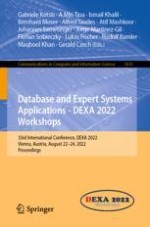2022 | OriginalPaper | Buchkapitel
Towards Practical Secure Privacy-Preserving Machine (Deep) Learning with Distributed Data
verfasst von : Mohit Kumar, Bernhard Moser, Lukas Fischer, Bernhard Freudenthaler
Erschienen in: Database and Expert Systems Applications - DEXA 2022 Workshops
Aktivieren Sie unsere intelligente Suche, um passende Fachinhalte oder Patente zu finden.
Wählen Sie Textabschnitte aus um mit Künstlicher Intelligenz passenden Patente zu finden. powered by
Markieren Sie Textabschnitte, um KI-gestützt weitere passende Inhalte zu finden. powered by
